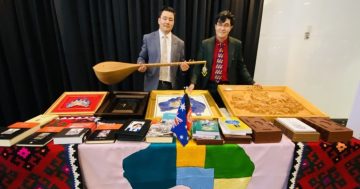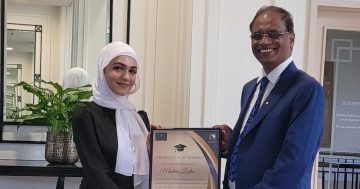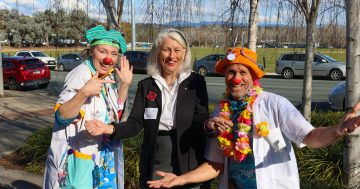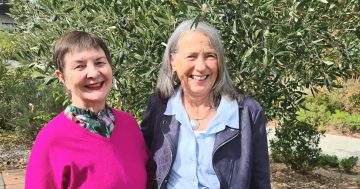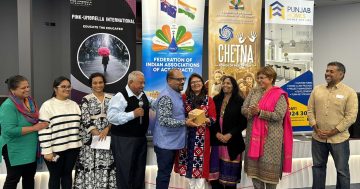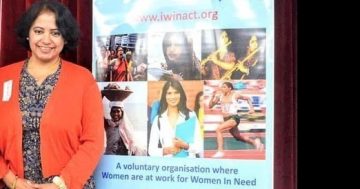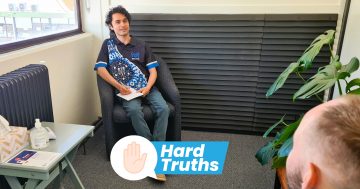
Afghanistan-born Migrant and Refugee Settlement Services caseworker Hangama Obaidullah helps migrant women in Canberra. Photo: Barbie Robinson.
Watching the events of recent weeks unfolding in Afghanistan has been a difficult experience for Afghanistan-born Migrant and Refugee Settlement Services (MARSS) caseworker and project officer Hangama Obaidullah.
Having moved to Australia in 2003, her home country has never been far from her heart, which is why she’s dedicated to running monthly workshops to help other migrant women develop social networks.
Right now, she’s also trying to help her mainly female friends and relatives who are still in Afghanistan to apply for Australian visas if they are eligible, but she knows how difficult that process is.
“I’ve been very sad, upset and suffering a lot,” says Hangama. “I’m struggling to help my loved ones to have a safe life.”
Under the new Taliban rule, life will be very difficult for women in Afghanistan. Hangama knows of one friend – a successful artist – who has been locked in a hotel room in Kabul for more than a month.
“She has a visa and a ticket but just can’t get out,” says Hangama.
She hopes to assist Afghan women who will arrive in Australia during the coming months because she remembers her initial experience of her new country as being quite isolating despite all the freedom it offered her.
Hangama had fled the Taliban rule in Afghanistan, where she’d experienced being locked inside and unable to go anywhere.
“In Australia, I saw all the freedoms I had [such as] the right to an education and to go out in the streets when I wanted,” she says. “It was a big achievement just to do these simple things.
“But more than that, I wasn’t aware of all the support and services that are out there and that’s why I want to help others now.”
In Canberra, Hangama’s program at MARSS specifically looks at rendering assistance to migrant women who are experiencing domestic violence. Part of this program is a monthly art workshop and presentation.
She says she uses the workshops to create a safe space for women, and invites presenters from organisations such as Domestic Violence Crisis Service, ACT Policing, Housing ACT, Centrelink and Marymead.
Normally, Hangama estimates it takes participants around an hour to 90 minutes to become comfortable enough to begin sharing their experiences and talking about their culture with other women in the room.
“Sometimes they are very excited to meet people from the same suburb who they’ve never met before,” she says. “It helps them to create deeper connections for after class.”
Once the ice has been broken, Hangama’s guest presenters arrive and deliver their talks around the specific supports they have in place for women who may be experiencing domestic violence.
“It doesn’t mean every woman attending the class is experiencing domestic violence, but they may have seen or noticed something in their community and the talks can help them with this,” she says.
When women come to Australia from countries such as Syria, Afghanistan, Iran, India and Bangladesh, Hangama says they often find it difficult to connect to the English-speaking culture.
“Lots of these women start to believe all of the skills they learned in their home country – whether for art or their career – aren’t useful here and they need to leave it all behind,” she says.
“I want to show them this isn’t the case.”
Participants can work on anything from poetry to painting to drawing, and all the materials are free.
The art classes can be a small way of instilling participants with confidence, and a means of getting them comfortable with a ‘classroom setting’.
For more information, visit Migrant and Refugee Settlement Services.












